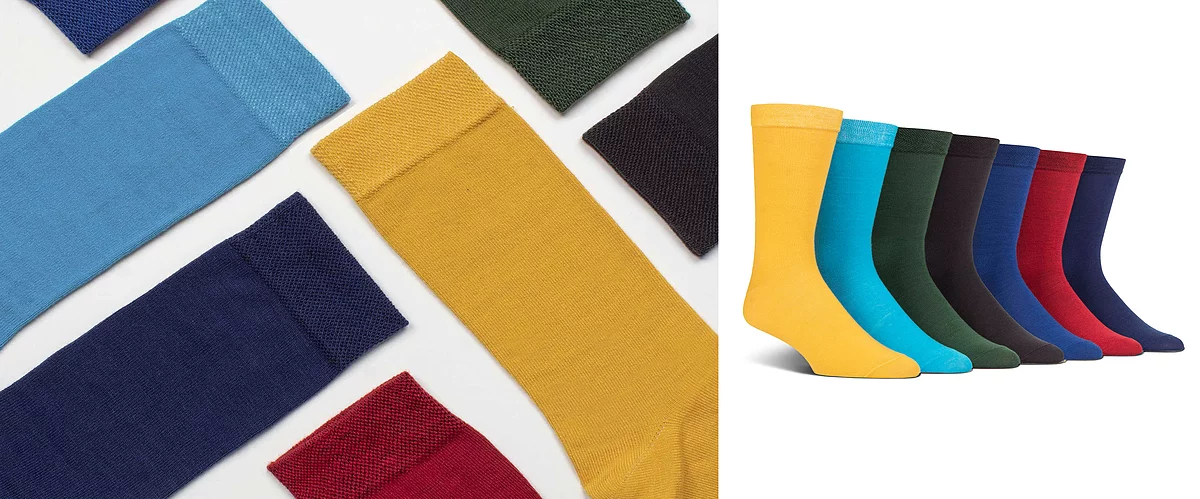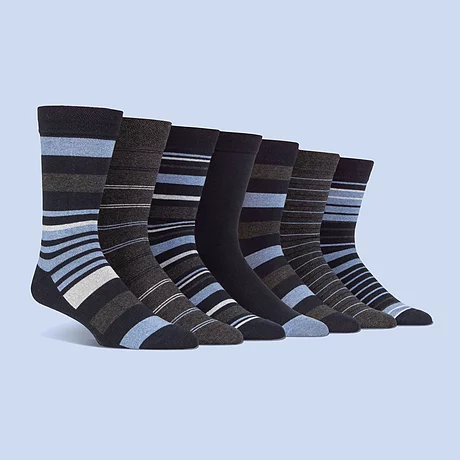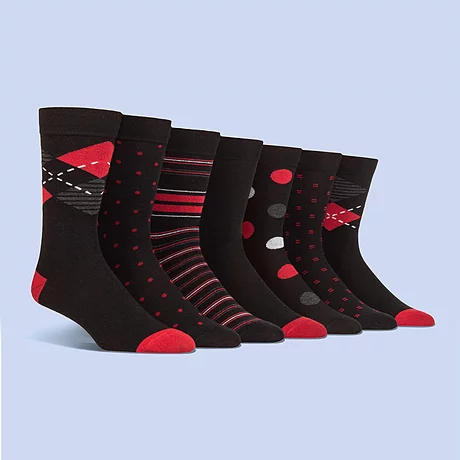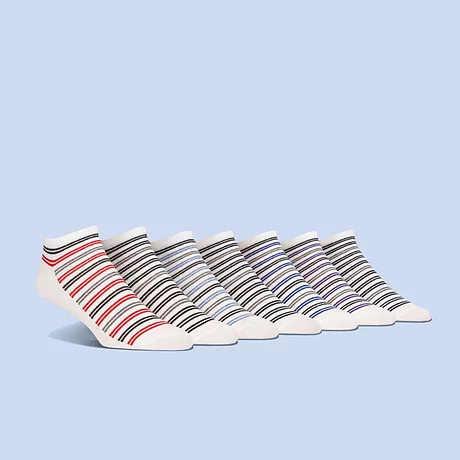In this Spairs blog post, we’ll explore what recycled cotton is, its benefits, and how it is transforming the fashion industry, including the socks and underwear world.
What Is Recycled Cotton?
Recycled cotton is a type of fabric made from cotton waste. This waste can come from two main sources:
- Pre-consumer Waste: This includes scraps and offcuts from the manufacturing process, such as excess fabric left over from cutting garments.
- Post-consumer Waste: This includes discarded clothing and textiles that are collected, sorted, and processed into new fibres.
The process of recycling cotton involves breaking down these cotton scraps and turning them into new yarns and fabrics. This not only reduces waste but also minimizes the need for new cotton production, which is resource-intensive.
Environmental Benefits Of Recycled Cotton
Reduces Waste in Landfills
One of the most significant benefits of recycled cotton is its ability to reduce waste. Every year, millions of tons of textile waste end up in landfills, contributing to environmental pollution. By using recycled cotton, we can divert a substantial amount of waste from landfills, giving old textiles a new life and reducing the strain on our planet.
Saves Water and Energy
Cotton production requires a considerable amount of water and energy. Recycled cotton, however, requires significantly less water and energy to produce compared to virgin cotton. This is because recycled cotton doesn’t need to be grown from scratch; instead, it repurposes existing materials, making it a more sustainable underwear option.
Reduces Carbon Footprint
The production of recycled cotton generates fewer greenhouse gases compared to traditional cotton farming. By reducing the need for pesticides, fertilizers, and extensive land use, recycled cotton helps lower the carbon footprint of textile production, making it a more eco-friendly choice.
Practical Benefits Of Recycled Cotton
Versatile Use
Recycled cotton can be used in a variety of products, from socks and underwear to home textiles and upholstery. Its versatility makes it a valuable resource for designers and manufacturers looking to create sustainable products without compromising on quality or aesthetics.
Cost-Effective
Because recycled cotton repurposes existing materials, it can often be more cost-effective than virgin cotton. This affordability makes sustainable fashion more accessible to a broader range of consumers, encouraging more people to choose eco-friendly options
How Recycled Cotton is Transforming The Fashion Industry
Sustainable Fashion Movement
The growing popularity of recycled cotton is a testament to the increasing demand for sustainable fashion. More brands are recognizing the importance of reducing their environmental impact and are turning to recycled cotton as a key component of their eco-friendly collections. By incorporating recycled cotton into their designs, fashion brands are not only appealing to environmentally conscious consumers but also helping to promote a more sustainable industry.
Ethical Production
Using recycled cotton aligns with ethical production practices by reducing the need for intensive farming and minimizing waste. Many brands that use recycled cotton are also committed to fair labour practices and transparency in their supply chains, ensuring that their products are ethically made from start to finish.
Innovation in Textile Recycling
The rise of recycled cotton has spurred innovation in textile recycling technologies. New methods for processing and spinning recycled fibres are continually being developed, improving the quality and efficiency of recycled cotton production. This innovation is essential for scaling up the use of recycled cotton and making it a mainstream choice in the fashion industry.
How To Incorporate Recycled Cotton Into Your Wardrobe
Look for Labels
When shopping for new clothes, look for labels or information that specify the use of recycled cotton. Many brands now include information about the materials used in their products, making it easier for consumers to make sustainable choices.
Support Sustainable Brands
Supporting brands that prioritize sustainability and use recycled cotton is a great way to promote eco-friendly practices in the fashion industry. Many brands are committed to reducing their environmental footprint and offer stylish, sustainable options made from recycled cotton. Spairs.co.uk is one of these brands; our amazing cotton blend socks feature recycled cotton blends; our men's cotton socks collection can be found here and our women's cotton socks collection here.
In Conclusion:
Recycled cotton is a powerful tool in the fight for a more sustainable fashion industry. By reducing waste, conserving resources, and lowering the carbon footprint of textile production, recycled cotton offers a practical and environmentally friendly alternative to traditional cotton. As more consumers and brands embrace recycled cotton, we can look forward to a future where fashion is not only stylish but also sustainable.



